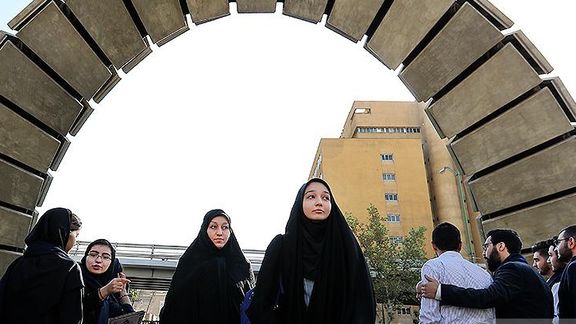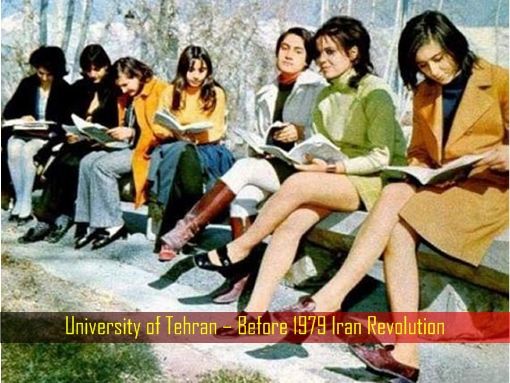Morality Guards Roaming University Campuses in Iran To Enforce Hijab

In an unprecedented move, morality guards began patrolling campuses of Iranian universities to force students comply with hijab and other Islamic regulations.

In an unprecedented move, morality guards began patrolling campuses of Iranian universities to force students comply with hijab and other Islamic regulations.
Ensaf News, a reformist website, on Friday reported that students of Amirkabir University in Tehran, one of the largest and most prestigious universities in the country, have said that morality guard patrols have also been issuing warnings to male and female students who talk to each other and confiscated their student cards or written down their details, presumably to keep a record of their "infringements".
Other guards who are stationed at the gates of the university and its dormitories have also been unprecedently strict since universities opened recently after a two-year hiatus due to the pandemic, students say, denying access to those whose appearance is not deemed "appropriate".
"Everybody gets scared of getting into trouble when there is a sound of motorbikes," one of the students at Amirkabir University told Ensaf. She said she had been told off by one of the guards who took her student card number for the record because the front of her short hair showed from under her headscarf. "It was never like this at this university before the pandemic," she said.
According to Ensaf News, students say after the re-opening of higher education institutions this year, the atmosphere has greatly changed. Authorities appointed after hardline President Ebrahim Raisi was elected, they say, are apparently finding it a good time to enforce an aggressive approach to Islamic discipline on students.

According to Ensaf News, the morality guards have in some cases forced girls to return to their dormitories and change into more "modest" coats. The new strict measures to which they are not accustomed, students say, have affected their attendance in classes because even one's color of socks can get them into trouble.
Students use social media to share experiences. They write that in some universities, including Tehran University, they are now required to wear at least veils similar to nuns instead of ordinary headscarves to cover their shoulders and that they are prevented from entering if they don't.
Since hijab became compulsory in Iran, within a couple of years from the Islamic Revolution of 1979, all government offices and universities have had special officers monitoring women's abidance by the rules of compulsory hijab and preventing those failing to meet their standards of modesty from entering the premises.
Men whose clothing looked "too western", too tight, or those who wore short-sleeve shirts would also be turned away at the gates.
In larger cities most universities in the past two decades only required women to wear regular headscarves and long coats in black or other modest colors such as brown, beige or gray, and trousers coming down to ankles but not the long black veil (chador) that completely covers the body from head to toe.
Universities in some smaller, more conservative towns, however, have always required girls to wear the veil. Many students, particularly those from large cities studying in smaller towns, would bring the veil with them to campus and only wear it when they were close to the gate.
Authorities have always promoted the long black veil as "the optimum (or best) type of hijab" but only a fraction of Iranian women wear it on a regular basis.
In some universities even the Islamic Student Unions have protested to the new strict measures. "Universities are not military barracks and dormitories are not prisons," the Islamic Union of Science and Technology University in Tehran said in a statement on Wednesday.